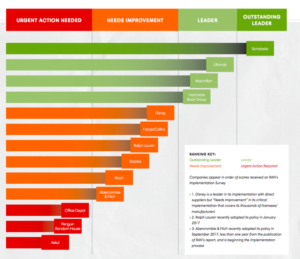NGO共同声明:「わずかな進歩だが、パリ協定目標達成には不十分」三井住友銀行が新融資方針を公開、石炭火力の制限示すも”例外”に言及(2018/6/21)
(English follows Japanese)
三井住友銀行が6月18日に石炭火力発電、パーム油、森林伐採についての新たな「事業別融資方針」の制定および「クレジットポリシー」の改定を公開した(注1)。環境NGO6団体は、方針表明を受け、石炭火力発電所と森林減少に対する融資方針を厳格化する姿勢を打ち出したことを歓迎する。一方、石炭火力セクターへの与信制限を明示しながら、実質的には現状容認となりうる抜け穴があるものと考える。日本3大金融グループの中で、地球環境に著しく悪影響を与える懸念のある特定セクターへの与信の対応を明確化したのは3社目である(注2)。
同発表において、三井住友銀行はメガバンクとしては初めて、石炭火力電力セクターへの「新規融資は国や地域を問わず超々臨界およびそれ以上の高効率の案件に融資を限定」することを明確にし、同セクター与信に対する具体的な制限を明記した。しかし、方針の中には「新興国等のエネルギー不足解決に貢献しうるなどの観点から、適用日以前に支援意志表明をしたもの、もしくは日本国政府・国際開発機関などの支援が確認できる」案件において「ポリシーの例外として、慎重に対応を検討」するという言及がある。これは”大きな抜け穴”となりうる可能性を持ち、この方針自体の意義を無効化しかねず、気候変動対策として評価できない。また、仮に高効率のものであっても、750kg/kWhものCO2を排出する新たな石炭火力発電所の建設は許されず、既存の石炭火力発電所であっても廃止していく必要があるという国連環境計画の勧告が存在する中、石炭火力発電を許容する方針は状況認識が甘いと言わざるを得ない。
さらに、三井住友銀行は大型の超臨界圧技術を用いたベトナムのギソン2石炭火力発電事業への融資を今年4月に決定している。これは、超々臨界圧より劣る大型の超臨界圧技術を用いており、「赤道原則」に違反している可能性もあると地域NGOに批判されている(注3)。こうした事業への融資は、三井住友銀行の今回の方針がこのような「大きな抜け穴」を許すものになりうることの証左である。
パリ協定の1.5~2℃目標達成のために、多くの銀行は石炭火力発電や石炭採掘事業への新規融資を禁止している。今回の三井住友銀行の石炭火力発電セクターへの与信制限に関する発表は明らかにこの水準に行き届いていない。6NGOは同社に対し引き続き、国内外の石炭火力発電事業や石炭火力発電に関与する企業への新規融資・引受から迅速に撤退する意思と工程をより明確にすることを求める(注4)。
三井住友銀行は「事業別融資方針」の中で、みずほフィナンシャルグループ(みずほFG)と同じく、石炭火力と同様に気候変動リスクを高めるパーム油・森林伐採にも触れている。しかしパーム油事業については、RSPO(持続可能なパーム油のための円卓会議)認証と同等の認証制度の有無を確認するだけでは森林減少、および気候への影響の高い泥炭地管理、人権侵害についての確認が不十分であり、広範に支持されている高炭素貯留アプローチ(HCSA)を義務付けるなど、追加的な確認項目を設定することが必要だ。また森林伐採への対応として、違法伐採や違法な焼却への融資を禁止することは前進だが、それだけでは「持続可能な開発目標(SDGs)」目標15にある2020年までに森林破壊を阻止することは満たせない。
三井住友銀行はSDGsへのコミットメントを表明しており、その中の目標13「気候変動に具体的な対策」について注力して取り組むとしている。私たちは同社が石炭からのダイベストメントを早急に進め、気候変動の緩和に重要な役割を果たす森林、特に熱帯林の保護などの取り組みも強化することを期待する。
国際環境NGO350.org日本支部 350.org Japan
「環境・持続社会」研究センター(JACSES)
レインフォレスト・アクション・ネットワーク(RAN)
認定NPO法人 気候ネットワーク
国際環境NGO FoE Japan
国際環境NGOグリーンピース・ジャパン
注1:「事業別融資方針の制定およびクレジットポリシーの改定について」株式会社三井住友銀行(2018年6月18日)
注2:「NGO共同声明:みずほFG新投融資方針策定、気候変動リスク管理に対する小さな前進。さらなる具体化が必要」(2018年6月14日)、
「NGO共同声明:『小さな前進、しかし具体的な取り組み内容の向上が必要』三菱UFJの環境・社会ポリシーフレームワークの制定について環境NGOが評価を公表」(2018年5月25日)
注3:ギソン2石炭火力発電事業プロジェクトの環境影響評価においては代替案が検討されていない、住民協議が適切に行われていないなどの懸念があり、銀行による環境・社会リスク管理を定めた「赤道原則」に違反している可能性もある。
注4:「石炭火力発電事業及び石炭採掘事業への新規融資に関する要請」では国際環境NGO 350.orgの日本支部(350.org Japan)は賛同団体とともに、3大金融グループ゚に対して以下の対策を求めている。
1.気候関連財務情報開示タスクフォース(TCFD)の提言にもとづき、温室効果ガスを大量に排出する分野への投融資状況を公開すること、
2.世界の平均気温の上昇を摂氏2度未満に抑えるシナリオに整合した事業戦略や明確な指標や目標を公表すること、
3.パリ協定の目標達成のため、石炭火力発電事業及び一般炭の採掘事業に関与する企業への新規融資を中止すること。
Environmental NGOs Evaluate SMBC’s New Sector Policies on Coal-fired Power, Palm Oil and Deforestation : “A policy showing little progress with a concerning loophole that does not align with the Paris Agreement”
350.org Japan
JACSES
Rainforest Action Network
Greenpeace Japan
Kiko Network
FoE Japan
June 21, 2018 Tokyo, Japan — On June 18, Sumitomo Mitsui Banking Corporation (SMBC) announced its “policy towards financing businesses with potentially significant adverse environmental and/or social impact” including coal-fired power, palm oil plantation developments and deforestation.
Environmental groups ー 350.org Japan, Japan Center for a Sustainable Environment and Society (JACSES), Rainforest Action Network (RAN), Kiko Network, Friends of the Earth Japan and Greenpeace Japan ー issued the following statement on SMBC’s new policies.
“We had high hopes for SMBC being the last of the major Japanese financial groups to announce an update of their social and environmental policy (1), following Mitsubishi UFJ Financial Group and Mizuho Financial Group. However we are very disappointed to see the visible loopholes in SMBC’s coal-fired power sector policy, which may defeat the purpose of the policy itself. There is also a lack of clarity around specific actions that the company will take on deforestation. While we welcome the fact that SMBC has shown a willingness to restrict coal financing and address deforestation, this announcement does not come even close to addressing the climate action needed in order to meet the goals of the Paris Agreement.
The decision that SMBC should have made here is to announce a stop to any new financing for domestic and foreign coal-fired power projects and companies involved in such projects, with a clear strategy and timeline. (2) SMBC’s recent decision in April 2018 to finance the Nghi Son 2 coal-fired power plant in Vietnam, which will utilize sub-critical coal technology and has been challenged by local groups for apparent violations of the Equator Principles, highlights the potential loopholes of its coal policy.
On deforestation, SMBC should have laid out clear criteria for halting deforestation and protecting carbon-intensive peatlands. Its mere reliance on weak certification systems and national laws is clearly not enough.
SMBC states that they are committed to the Paris Agreement and the SDG goal of “tak[ing] urgent action to combat climate change and its impacts.” We urge SMBC to step up their game by making immediate steps towards divesting from coal and strengthening their policies on deforestation.”
The NGOs also provide the following detailed analysis of the policy which reveals glaring inconsistencies:
“In the document, SMBC states that it will limit lending to coal-fired power plants that “use ultra-supercritical or more advanced technologies which are considered highly efficient.” Firstly, the policy’s inclusion of financing for any type of coal-fired power is insufficient when research endorsed by the United Nations Environment Programme clearly indicates there is no space to build any more new coal-fired power plants – no matter how efficient – in order to keep global temperature rise well below 2 degrees. More worrisome is the fact that SMBC states it will make exemptions for projects that [they have] already committed support […] or where the Japanese government or Multilateral Development Banks support.” This is a major loophole that will likely nullify the limitation that is set in the first place.
SMBC, like Mizuho Financial Group, also references palm oil and logging, which are significant causes of deforestation, which in turn contributes to climate change. However, for palm oil, mere reliance on the Roundtable for Sustainable Palm Oil (RSPO) or equivalent certification systems is not sufficient to address deforestation, management of carbon-intensive peatlands or human rights, and additional measures are necessary, including use of the High Carbon Stock Approach. Additionally, SMBC’s policy to prohibit financing to businesses involved in illegal logging and illegal land clearance activities is a good start, but not sufficient to achieve zero deforestation by 2020 as stipulated in Sustainable Development Goal (SDG) 15. ”
Notes to the editor
1. Sumitomo Mitsui Banking Corporation: Establishment of policy for businesses associated with Environmental and Social risk
2. 350.org Japan and supporting NGOs are currently running a global petition calling upon Japan’s three biggest financial institutions — Mitsubishi UFJ Financial Group, Mizuho Financial Group, and Sumitomo Mitsui Financial Group — to: i) disclose financial exposure to carbon intensive industries in line with the Task Force on Climate Related Financial Disclosures (TCFD); ii) outline business strategies and clear targets and metrics to align their finance policies with the Paris Agreement; iii) cease all new lending to coal fired power generation and coal extraction projects and companies involved in such projects.
For more details please see: http://world.350.org/east-asia/divest-from-coal-en/
CONTACT:
Shin Furuno, 350.org Japan: shin@350.org
+81(0)3 3230 7600 / +81(0)70-2793-3648
—–
レインフォレスト・アクション・ネットワーク(RAN)

